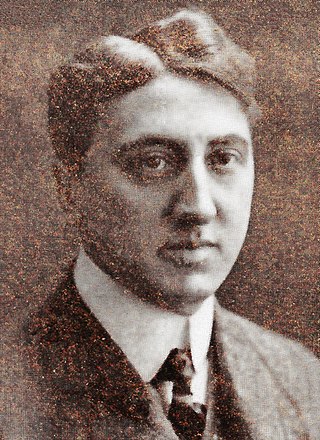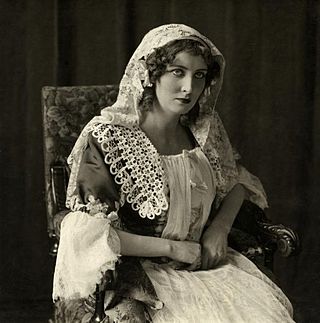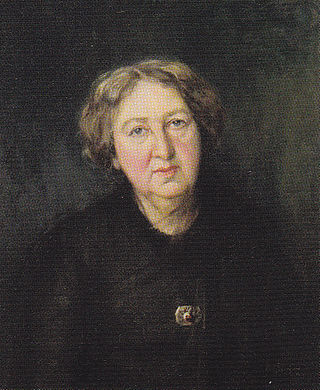Related Research Articles

Inocente de Ti is a Mexican telenovela produced by Nathalie Lartilleux for Televisa in 2004.

Raphael Evers is a Dutch-Israeli Orthodox rabbi. He was a rabbi in the Netherlands and Germany. On August 1, 2021, he made aliyah to Israel.

Louis H. Chrispijn, Sr. was a Dutch actor, writer, and director of both theatre and films. Together with M.H. Laddé, Willy Mullens, Maurits Binger, and Theo Frenkel, he was one of the pioneers of early Dutch cinema.
De Bannelingen is a 1911 Dutch silent drama film directed by Léon Boedels and Caroline van Dommelen.
Roze Kate is a 1912 Dutch silent drama film thriller directed by Oscar Tourniaire.
Vrouwenoogen is a 1912 Dutch silent drama film directed by Caroline van Dommelen.
Nederland en Oranje is a 1913 Dutch silent historical drama film directed by Louis H. Chrispijn. The film features nineteen short pieces with themes from Dutch national history and was made to celebrate the Dutch Kingdom.
Heilig recht is a 1914 Dutch silent drama film directed by Louis H. Chrispijn.
Weergevonden is a 1914 Dutch silent film directed by Louis H. Chrispijn. It was the first film produced by Hollandia Studios and one of the first Dutch feature films.
Toffe Jongens onder de Mobilisatie is a 1914 Dutch silent comedy film directed by Jan van Dommelen.
The Fatal Woman is a 1915 Dutch silent drama film directed by Maurits Binger and Louis H. Chrispijn.

Caroline van Dommelen was a Dutch film actress and director of the silent era. She appeared in 11 films between 1911 and 1918, and directed three during this time period. Several of her family members – including her brother, Jan van Dommelen – were involved in filmmaking.

Jan van Dommelen was a Dutch film actor of the silent era. He appeared in 44 films between 1911 and 1939.
Christine van Meeteren was a Dutch film actress of the silent era. She appeared in 17 films between 1913 and 1936.
Meu Amor is a Portuguese telenovela which aired from October 19, 2009 to October 23, 2010 on TVI. The show won the 2010 International Emmy award for best telenovela.

Mientje Kling was a Dutch theatre and film actress and radio personality.

HelenaFourment was the second wife of Baroque painter Peter Paul Rubens. She was the subject of a few portraits by Rubens, and also modeled for other religious and mythological paintings.

Stéphanie Hélène Swarth was a prolific Dutch poet active from 1879 to 1938. She is considered one of the Tachtigers and acquired a reputation as a sonneteer.

Karin Bloemen is a Dutch actress and singer. She has appeared in several films and television shows in the Netherlands. Since 1983 Bloemen is a singer and cabaret artist who is very extrovert and likes to draw attention to herself with her striking appearance, her beautiful songs and lively performances. In her theatre shows and concerts she makes use of her fabulous voice and expressive facial expressions and she plays the audience very well. She is exuberant and extroverted and can also be subdued and sensitive.

A Vase of Flowers is a 1716 floral painting by the Dutch painter Margaretha Haverman. It is in the collection of the Metropolitan Museum of Art.
References
- 1 2 "De bloemen, die de ziel vertroosten". EYE Film Institute Netherlands. 30 September 2011. Archived from the original on 2014-01-02.